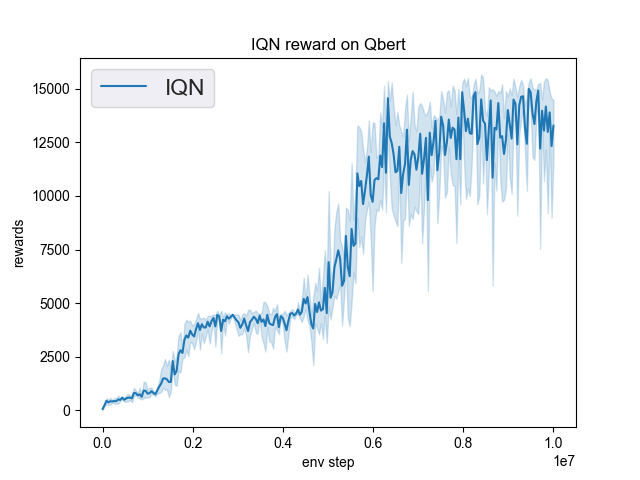-
Notifications
You must be signed in to change notification settings - Fork 165
New issue
Have a question about this project? Sign up for a free GitHub account to open an issue and contact its maintainers and the community.
By clicking “Sign up for GitHub”, you agree to our terms of service and privacy statement. We’ll occasionally send you account related emails.
Already on GitHub? Sign in to your account
IQN #139
base: master
Are you sure you want to change the base?
IQN #139
Conversation
Results comparison
|
|
@qgallouedec Thank you for adding this. I wanted to report that for me it works well and I was able to adapt it to implement the paper Self-Imitation Advantage Learning New replay buffer to store discounted returns ( and updated training loop: The extra parameters I found immediately that SAIL-IQN performs nicely on sparse rewards so am quite happy with my initial results but by no means has my testing been thorough. |
|
Thanks for your feedback @emrul! This PR is still draft because I can't replicate exactly the results of the paper for Qbert. I don't know if it's a hyperparameter problem or something else, I'm still looking. I think SIL (and probably maybe SAIL) would fit in SB3-contrib. However, it would be best to discuss it in a dedicated issue. I'll open it right away. |
|
Thanks @qgallouedec - I didn't know there's a reproduction issue, I will look into this also - I compared your implementation with the Dopamine one and the Medipexel/pytorch port of that and it looked quite different. I will dig in to see where they differ and feedback if I find anything to assist. |





Description
Context
Types of changes
Checklist:
make format(required)make check-codestyleandmake lint(required)make pytestandmake typeboth pass. (required)Note: we are using a maximum length of 127 characters per line